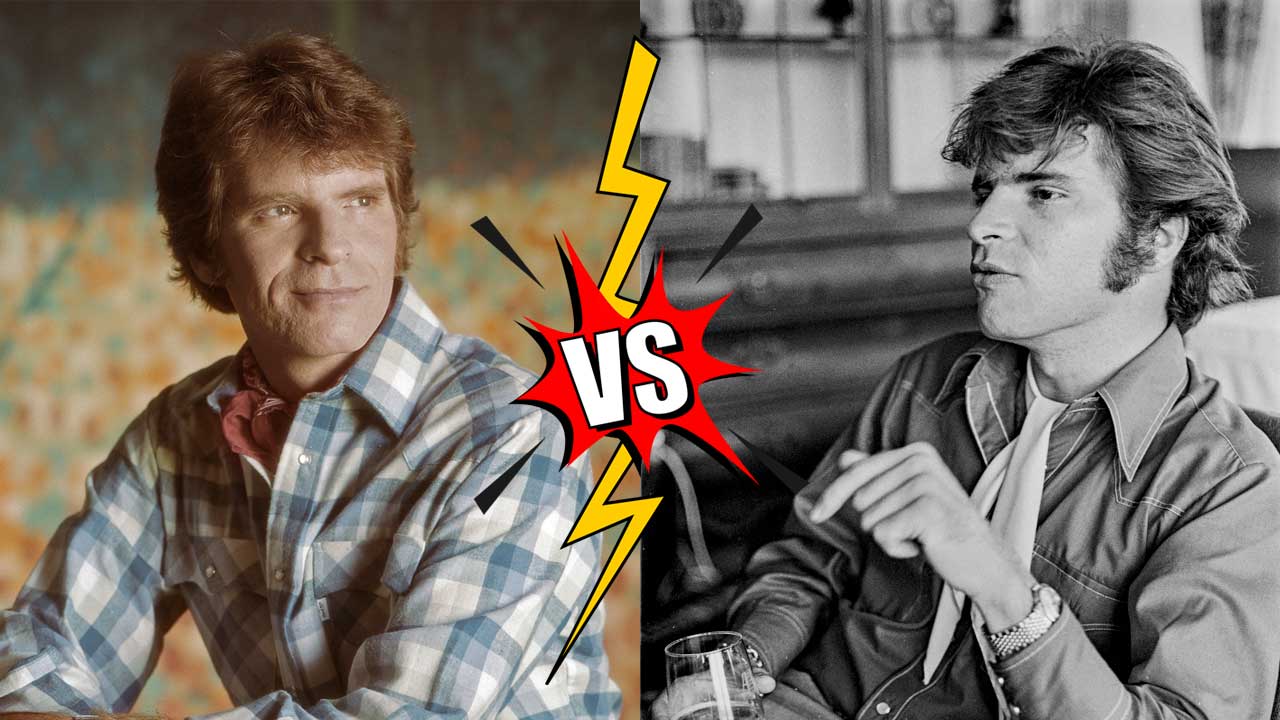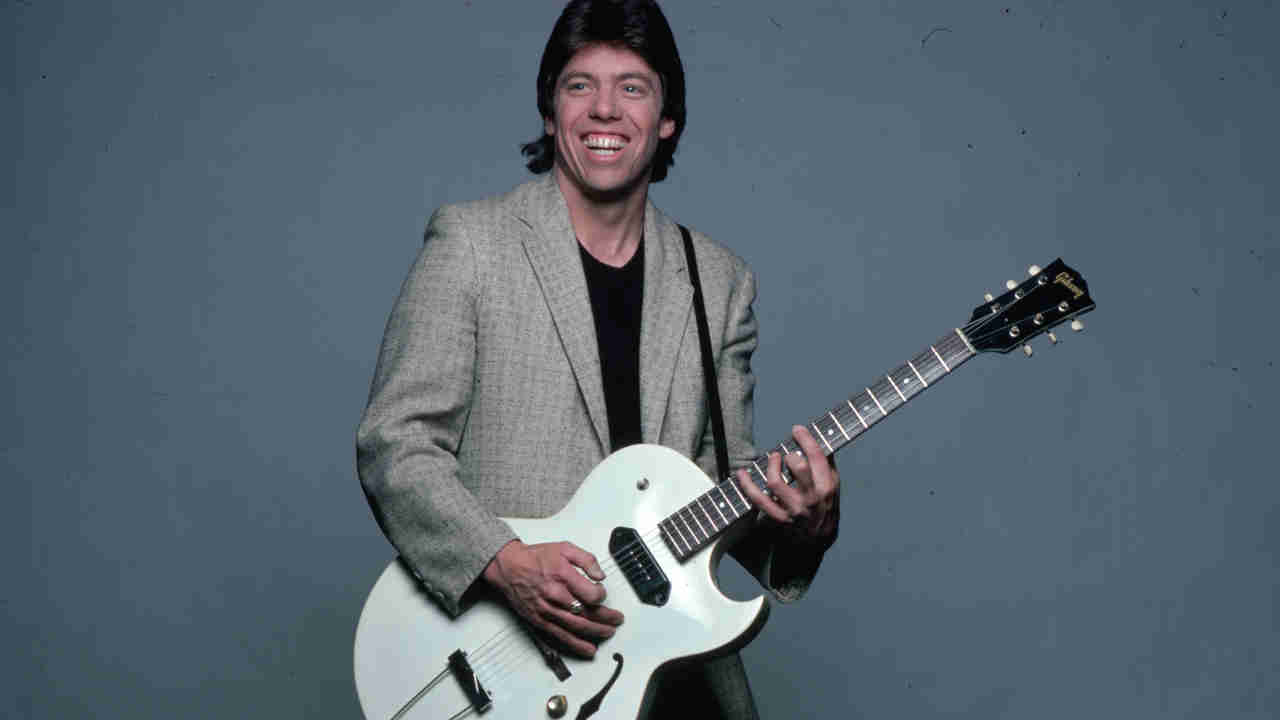That time John Fogerty was sued for plagiarising John Fogerty
In 1985, John Fogerty was sued for releasing a song that allegedly ripped off another he'd written 15 years earlier – and it was a battle that went all the way to the Supreme Court

Select the newsletters you’d like to receive. Then, add your email to sign up.
You are now subscribed
Your newsletter sign-up was successful
Want to add more newsletters?

Every Friday
Louder
Louder’s weekly newsletter is jam-packed with the team’s personal highlights from the last seven days, including features, breaking news, reviews and tons of juicy exclusives from the world of alternative music.

Every Friday
Classic Rock
The Classic Rock newsletter is an essential read for the discerning rock fan. Every week we bring you the news, reviews and the very best features and interviews from our extensive archive. Written by rock fans for rock fans.

Every Friday
Metal Hammer
For the last four decades Metal Hammer has been the world’s greatest metal magazine. Created by metalheads for metalheads, ‘Hammer takes you behind the scenes, closer to the action, and nearer to the bands that you love the most.

Every Friday
Prog
The Prog newsletter brings you the very best of Prog Magazine and our website, every Friday. We'll deliver you the very latest news from the Prog universe, informative features and archive material from Prog’s impressive vault.
When John Fogerty – the singer, guitarist and songwriting mastermind behind Creedence Clearwater Revival – broke that band up in 1972, he single-handedly laid waste to one of the most successful and beloved groups on Planet Earth. Half a century later, it’s difficult to conceive just how massive they were back then; Creedence had accumulated ten million-selling singles, they dropped six albums on Fantasy Records that landed in the Billboard Top Ten (three in 1969 alone) and they topped charts all over the globe – although weirdly, they never hit number one in their native country.
Nonetheless, their instantly recognisable sound proved hugely popular with mainstream audiences. While some of their contemporaries looked forward to the consciousness-elevating possibilities of psychedelia, Creedence celebrated America’s verdant lineage of R&B, fusing it with the jammy excess of roots rock and the fuzzy power of electric blues. Even if you hadn’t heard the song before, you knew when you were listening to Creedence.
Creedence dropped Cosmo’s Factory in 1970. It was their fifth LP and arguably their best, although its two predecessors – Green River and Willy And The Poor Boys (both 1969) – were formidable outings in their own right. When people use “swampy” to describe Creedence’s trademark sound, Run Through The Jungle springs to mind. Cosmo’s sixth track is a watery, freewheeling jam with a thudding low end and stitches of taut, bluesy fretwork drenched in reverb. They released it as a single, which proved a canny choice; it received a gold certification and quickly emerged as a fan favourite.
After breaking up the band in 1972, Fogerty focused on a solo career, releasing three strong albums, very much in the spirit of the Creedence sound. The first, The Blue Ridge Rangers – an album of covers, with no mention of Fogerty's name on the cover – came out on Fantasy, but after alleging that the label had failed to promote the record properly, Fogerty demanded to be released from his contract.
Fantasy Records owner Saul Zaentz, refused. Eventually, Fogerty signed a deal with David Geffen’s Asylum Records for the North American rights to his next album but it cost him – Fogerty had to forfeit the rights to all of the songs he’d written under his previous agreements. This did not sit at all well with Fogerty and the idea of payback landed high on his agenda.
After releasing a critically adored but commercially muted eponymous solo album in 1975 – the one with the original version of Rockin' All Over The World – Fogerty wrote the album Hoodoo, which Asylum rated as subpar, prompting Fogerty to call off its release just one week before it was scheduled to drop. He laid low for the next decade until 1985’s Centerfield, which eclipsed them all in terms of commercial sales and cultural saturation.
Centerfield contains not one but two tracks that seem very much directed toward his formal label boss – Mr. Greed and the less-ambiguous Zanz Kant Danz, which includes the lyric, 'Zanz Kant Danz but he’ll steal your money/Watch out boy, he’ll rob you blind'.
Sign up below to get the latest from Classic Rock, plus exclusive special offers, direct to your inbox!
Fogerty flew a bit too close to the sun on the latter, drawing a $144 million defamation suit from Zaentz that was eventually settled out of court. Subsequent pressings saw the song re-titled Vanz Kan't Dance.
But it was Centerfield’s opening track – The Old Man Down The Road – that would ignite one of the strangest plagiarism lawsuits in music history. Remember that Fantasy owned the rights to Cosmo’s Factory and its aforementioned sixth track, Run Through The Jungle.
It was their contention that The Old Man..., which they did not own, was an abject plagiarism of Run Through The Jungle. Essentially they claimed that Fogerty had ripped himself off and they sued him for plagiarising himself. Fogarty virulently disagreed, insisting that The Old Man... was a separate and unique composition and that any similarities were coincidental.
This case did not settle out of court. It moved relentlessly through the judicial system, all the way to a jury trial in 1988. In one of rock’s most bizarre moments of the 80s, John Fogerty sat in the witness box with a guitar on his lap and explained to the jurors what must have seemed obvious to the entire courtroom – of course the two songs are going to sound the same, considering that they were written and performed by the same artist in that artist’s signature swampy style. But they could still be wholly different songs. The jury agreed with Fogerty, determining that the two tracks fell short of the legal standard for copyright infringement.
If Fogerty felt vindicated, his joy was violently diminished by the $1 million in legal fees that he spent to defend himself against the infringement claim. Had Fantasy Records won their lawsuit, Fogerty would have been required to pay their legal fees and so he reasoned that the opposite should also apply. He petitioned the court for reimbursement of his legal fees but was denied, with the court ruling that Fantasy’s suit had been neither frivolous nor in bad faith – the burden required for reimbursement of legal fees. Undaunted, Fogerty appealed that ruling and in 1993, his appeal was denied by the United States Court of Appeals for the Ninth Circuit.
The crux of Fogerty’s appeal was that it was unfair for successful defendants to face a higher burden than successful plaintiffs for reimbursement of attorney's fees. Refusing to concede, Fogerty appealed to the United States Supreme Court who agreed to hear the case and who, in a unanimous 1994 decision, ruled in Fogerty’s favour.
Chief Justice William H. Rehnquist – a staunch conservative – perhaps betrayed an appreciation for Fogerty’s music, noting in his decision that Creedence “has been recognized as one of the greatest American rock and roll groups of all time.” He also noted that Congress intended a single standard should apply to prevailing parties in the award of attorney’s fees.
Fogerty has continued to release music over the years, and while themes and collaborators have changed, the new songs continue sound like the John Fogerty of old. And, to complete the happy ending, Fogerty announced in 2023 that he'd retained the rights to Creedence Clearwater Revival's global catalogue after a 50-year legal battle.
Hailing from San Diego, California, Joe Daly is an award-winning music journalist with over thirty years experience. Since 2010, Joe has been a regular contributor for Metal Hammer, penning cover features, news stories, album reviews and other content. Joe also writes for Classic Rock, Bass Player, Men’s Health and Outburn magazines. He has served as Music Editor for several online outlets and he has been a contributor for SPIN, the BBC and a frequent guest on several podcasts. When he’s not serenading his neighbours with black metal, Joe enjoys playing hockey, beating on his bass and fawning over his dogs.

